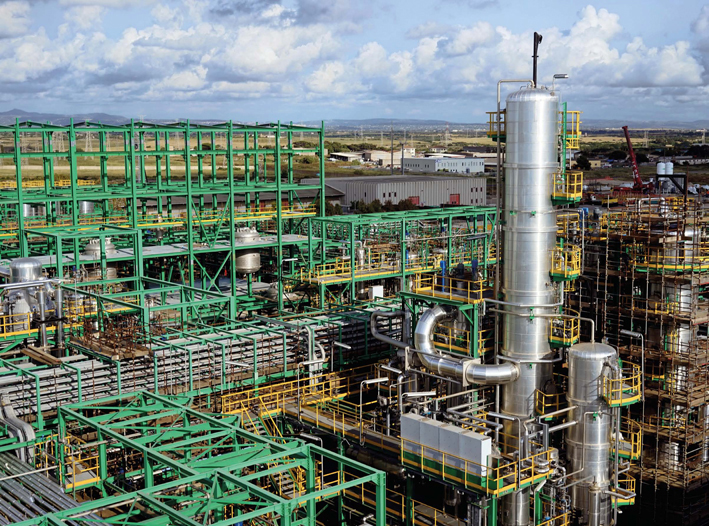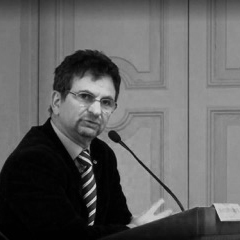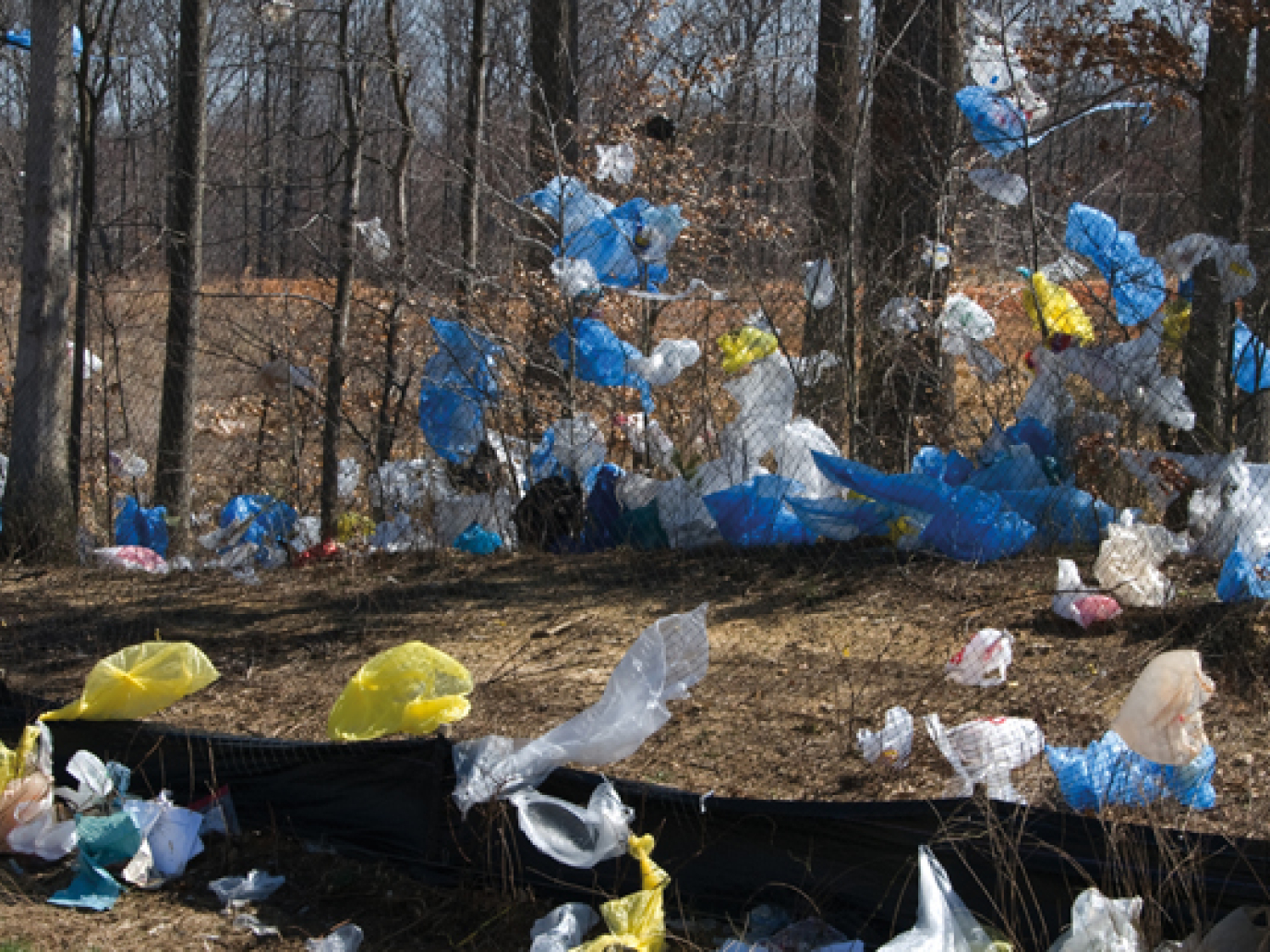For once, the revolution involving landfills and waste management saw Italy as the leader in Europe. Funny, since Italy is known for having the highest number of law infringements, some of them very costly such as those of waste in landfills. A few concise lines were more effective than many words and bills. Such amendment certainly opposed the widespread trend by any Italian government following one upon the other, regardless of their political leanings, to try to avoid making choices on environmental policies while leading the country. Such amendment has created a set of environmental regulations, a change in the lifestyle of many citizens, while supporting environmentally-friendly technological innovation able to create new jobs and backing the industrial reconversion of the all-important chemical sector.
In the last few years, only the so-called “ecobonus” (building subsidy) for property renovation – whose stabilization is still postponed as we speak – has played an equally stimulating function in an economic sector already in dire straits. The chemical and building industries have been two essential contributors to the development of Italy, both for the wealth and the number of jobs created.
Today, though, with some analogies confirming that the green economy is not just a sector but a new way to conduct the economy, they both have to reconvert if they want to survive into the future: the chemical sector has to change its resource base with which it feeds its production cycles – going from fossil fuels sources to biological renewable ones – and the building industry must concentrate on renovations, restorations and urban regeneration rather than expanding built-up areas with new buildings.
But – however simple – policies are needed, such as the ban to produce a widespread item or tax concessions. Otherwise, positive innovations offered by research and its technological applications may struggle and the history of renewable sources – which are more and more competitive but ostracized by all ministers of economic development – is a bad example of how “insensible politics” misses opportunities: today half of the electric power generated in Italy comes from renewable sources and half a million citizens has a photovoltaic system installed on their roof. The continual government stop-and-go policies have put a strain on businesses and have not been able to create a sector with guaranteed and long-term employment.
But the case of plastic bags is a positive one: when in December 2006 the regulation providing for a ban of the sale of non-biodegradable plastic bags was introduced, environmentalists as well as the most innovative host of the Italian chemical industry rejoiced. Many opponents started to lobby against it, well aware that in Italy “a delay is easily obtained”. Indeed, with the next Berlusconi government the coming into force of the ban was postponed from 2010 to 2011. The united efforts of the citizens’ movements organized in associations (Legambiente had led the way in the plastic bag battle since the late 80’s), the rise of the most innovative industrial entities (gathered in the association Assobioplastiche) on the one hand and the awareness of the “plastic” lobby groups that they were a small minority on the other, accomplished a miracle: from 1st January 2011 non-biodegradable plastic bags are no longer marketable in Italy.
The reform/revolution came at the right time as it was immediately confirmed by how it was welcomed by the citizens: in the first two large-scale retailers that anticipated the coming into force of the ban there was an immediate result with a fall of 50% of disposable plastic bags.
Moreover, all the surveys indicated citizens were in favour of the ban: which is rather strange since any ban is normally frowned upon. Apparently, a more ecologically sustainable alternative and the “visible” evidence of the environmental impact of plastic bags gained the upper hand over old habits. The plastic of those bags is that of the “artificial island” in the Pacific, is the source of widespread pollution, even in those places which we would expect to be pristine, it is the ubiquitous enemy of our seas that kills turtles and sea mammals. In short, it was a situation where the environmentalist’s “enemy” was indeed indefensible, without even resorting to the argument – as sound as it may be – of the contribution to the climate change and greenhouse effect that plastic bag production entails.
Nevertheless, Federchimica and Plastic Europe, after an initial opposition, made the best of a bad bargain; some of them know where the best future of the chemical industry lies but lobbyists and swindlers did not give in and tried to play their trump card with Europe and their regulations on the “free movement of goods” guaranteed by European treaties, against the Italian set of rules, regarded as the most advanced all over the world.
In October 2012, in Denver (USA) lawmakers, Ngo’s and other industries showed an interest in our initiative. It is no coincidence that since then many American states have followed suit, from California to Hawaii. The European Parliament itself rejected that distorted interpretation of the treaties. A few weeks before its renewal, it passed the new bill for a new directive on packaging, envisaging the possibility for every member state to resort to bans as well as tax regulations to achieve the 50% reduction target of the use of disposable plastic bags within three years. In addition, that bill enshrines the fundamental value of an efficient sorting of the organic fraction of waste, of compostable plastic bags, in line with the Italian regulations. Moreover, it is not coincidental that Italy has already achieved what for other European Countries is still an objective: the 180,000 tons of shopping bags put on the Italian market in 2010 – before the ban – have become 90,000 tons in 2013.
This story denies the trite cliché according to which Italians would be resistant to behaving “ecologically”. “We are not Swiss!” (or English, German, etc.). How many times have we heard this phrase (or used it ourselves)? However, with plastic bags, we have demonstrated how many significant aspects of our lifestyle can be changed in a short time, using more and more often the same bag. And when the institutions manage to carry out what they are supposed to do and set up an efficient system, the evidence shows that “it can be done” (as demonstrated by the “Milan Case”, the European metropolis with the highest record of source collection, which is the subject of another article in this issue of Renewable Matter). As demonstrated by more emblematic cases in the North-East and in Campania (think of Salerno), which are systematically analysed by those in other countries who would like to introduce efficient and modern systems of source collection.
However, Italy is indeed the land of pettifogging, where every law has a loophole. Once the “revolution” was completed, in 2011 retailers started using fake biodegradable plastic bags that have polluted the environment and the market, cheating consumers. New regulations had to be introduced to specify that the only bags allowed on the market were those biodegradable and compostable according to the EU regulation (UNI EN 11432). But the muddled regulatory procedure and the slyness of some operators made it possible that today almost half of the shopping bags are illegal.
On 21 August, the Dl91 came into force finally providing for severe sanctions (up to 100,000 euro) for those still marketing illegal bags, hence the legal proceedings by the Public Prosecution Office in Turin mentioned at the beginning of this article.
At last, we can safely say that the industrial reconversion of the Italian chemical industry is fully supported through the first shift from fossil to renewable vegetable raw materials.
A change underway that repeats the glories of the Italian chemical industry. In the 60’s, the Italian economic boom relied on the car industry – the legendary 500 – and the chemical sector, whose symbol product was Moplen by Nobel Prize winner Giulio Natta.
Today a new revival of the economy enabling the country to move realistically away from the crisis can only rely on the green economy, that of renewable sources, energy efficiency, of a new and sustainable mobility, or urban regeneration with zero soil use, of quality and multifunctional agriculture. A new economy where the role played by the “green chemistry” becomes essential in order to pave the way for the future. Think of the plant in Crescentino by MossiGhisolfi Group, the first of a series already producing second generation biofuels, called upon to offer an industrial and clean future to other regions; Sulcis in Sardinia, which experienced a decline because their economy was linked to resources such as coal or where their installations did not have close connections with their surrounding area, such as the Alcoa factory in Porto Vesme. Green chemistry can make industrial reconversions possible – think of the positive experience in Porto Torres (Sardinia) where Novamont together with ENI has become a joint venture, Matrìca. Without it, it would be impossible to maintain jobs in many industrial sites that have now become obsolete and uneconomic, starting from the many refineries bound to close down and a shrinking market (consumption decreases not only because of the crisis) as well as their environmental impact.
 |
|
The biorefinery of Porto Torres, in Sardinia. The world largest and most innovative integrated pole of green chemistry. |
Indeed, it was the European Commission that on 3rd February 2012 adopted a strategy to direct the economy of the Union countries towards a wider and more sustainable use of renewable resources. The avowed objective was to create a more innovative society and a low-carbon economy with reduced emissions. This could be achieved through the sustainable use of renewable resources coming from agriculture for industrial purposes, while protecting biodiversity and the environment.
For once, Italy is now leading the way of a wider and more sustainable use of renewable resources, as clearly indicated by the European Commission. Italy is helped by gifted and dedicated researchers that have seen this as the only way forward for twenty five years now, by some brave and far-sighted entrepreneurs who, against all odds, obstacles (think of the Nimby committees and the many politicians that oppose the green chemistry in Sardinia), are betting on environmentally-friendly innovation to make plants that will be able to be taken as a model the world over. Italy is also helped by a simple ban – so stubbornly wanted by an environmental association – that outlaws a very popular product.
A small example of good politics worth reproducing on a large scale.



